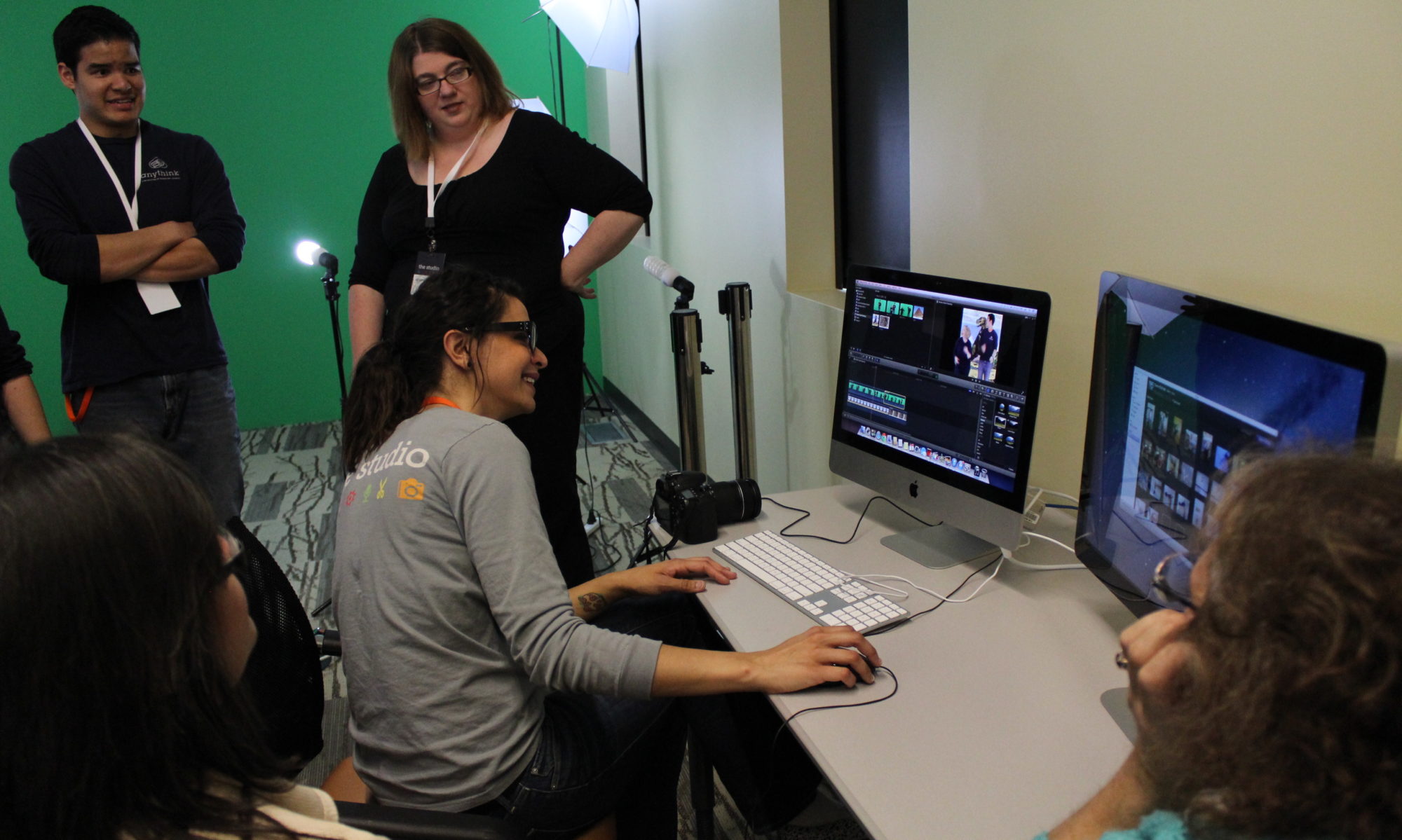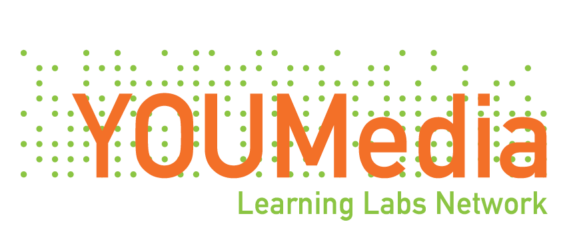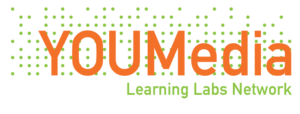Our five labs are all part of the YOUmedia Learning Labs Network, started in 2011 with support from the MacArthur Foundation and the Institute for Museum and Library Services (IMLS). Our Network, hosted by the National Writing Project, consists of labs in thirty libraries, museums, community centers, and school settings, dedicated to equity and digital inclusion, and who continue to share programs and engage in national conversations and professional development on the IMLS-funded Community of Practice.
Having been built on the YOUmedia Network’s foundation of connected learning and HOMAGO and with the philosophy that youth are best engaged when their interests are prioritized and cultivated by program staff and administration, the Post-Emergent Library Makerspaces Project allowed for us to surface the issues that many libraries (and museums) were facing after opening their labs, but had not yet defined. We began our gatherings and action research in earnest in late 2015. We met online monthly to compare data and observations, then gathered in August 2016 to surface what we had identified as post-emergent themes that emerged across labs. We presented initial findings at the Digital Media and Learning conference in October 2016 in Irvine, CA.
Our theory of action
Action research is a research methodology rooted in practice. It involves self-reflective inquiry and a practitioner doing their own research on their current work. Generally it involves a cyclical pattern of data collection, action, evaluation, modification or adjustment, then begins again.
We approached our work with an action research focus while also being convened as vertical staff teams, consisting of a mentor and an administrator from each of the labs. These teams collaborated to collect data and talk through their findings locally, then shared findings with other libraries that were part of this project. We often looked at data and asked “what about this data is indicative of the post-emergent moment?”
For many libraries, it’s a new experience to include mentors and “frontline” staff into a research project alongside library administrators, who in turn often don’t get an opportunity to think about practice on the floor. Our action research approach also surfaced data and measurements beyond turnstile clicks to think about the institution’s impact on teaching and learning.
The YOUmedia Learning Labs Network
The YOUmedia Learning Labs Network believes that access to high-quality educational experiences is a basic right of all learners and a cornerstone of equity. We work in partnership with institutions, organizations, and communities nationally to develop and sustain leadership for educational improvement. YOUmedia Learning Labs are centered around production and guided by a core philosophy that youth are best engaged when they are discovering and following their passions, collaborating with others, and being makers and doers.
The National Writing Project
The National Writing Project, our network host, has a long history of teacher led-professional development driven by action research and inquiry. As a peer-supported community of practice, bringing together educators across grade levels and disciplines, both in and outside of school, with a focus on literacy and connected learning, the NWP provides technical support and program guidance for this project.




